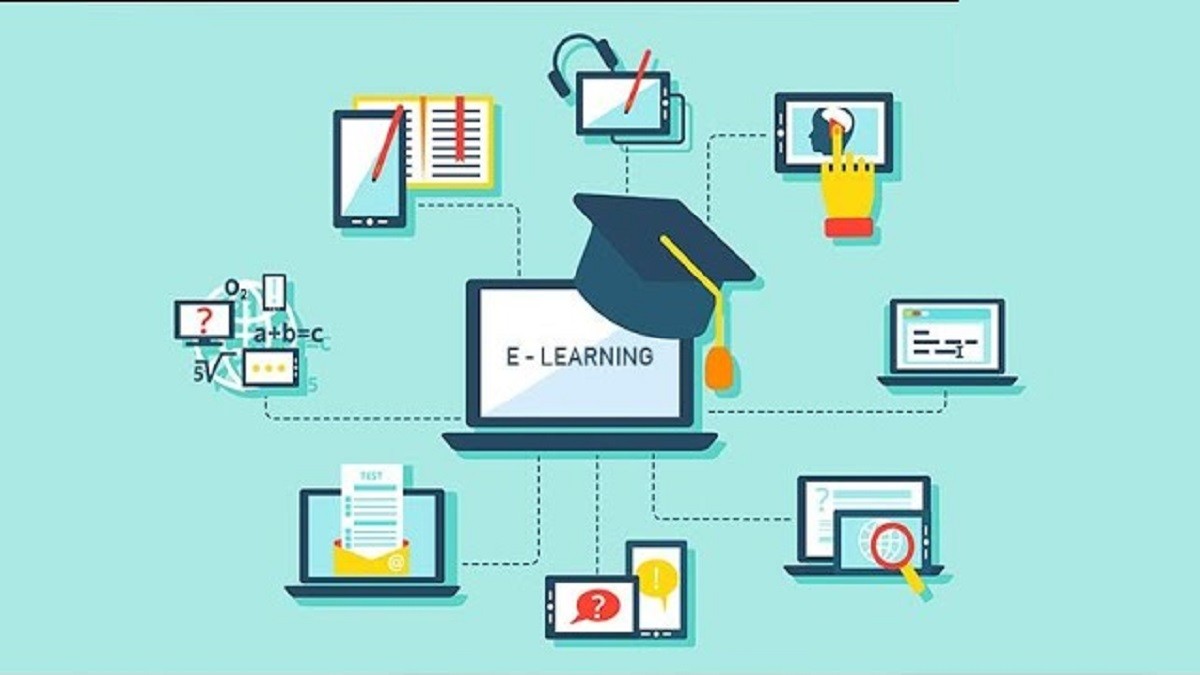

Consultancy for End of Project Evaluation
19/8/2025 www.akhtaboot.comAmman, Jordan
أخرى
Job requirements
-
5 - 16
-
Senior (Team Leader/Staff Supervisor)
Description
Evaluation Terms of Reference
Project title: “Life-saving humanitarian assistance for refugees and vulnerable host populations (in Lebanon and Jordan) through healthcare, protection and psychosocial support.”
August 2025
1.Summary of Evaluation Terms of Reference
Medair is seeking an external consultant to undertake an end-of-project evaluation for the Action titled “Life-saving humanitarian assistance for refugees and vulnerable host populations (in Lebanon and Jordan) through healthcare, protection and psychosocial support”. The project, implemented by Medair and its partners, aims to deliver critical healthcare services and psychosocial support to refugees and vulnerable host communities in Lebanon and Jordan. The evaluation will be conducted in Jordan only, using the OECD-DAC evaluation criteria to assess the project’s relevance, effectiveness, efficiency, impact, coherence, and sustainability. The findings will help Medair and its partners enhance accountability and learn from the project outcomes for future programming. The project is implemented in four locations: Mafraq, Amman, Irbid, Zarqa (non-camp) governorates, and referrals from Madaba, Balqa, Ajloun, Jerash and Zaatari Camp during the period of July 2023 and December 2025.
|
Project Title |
Life-saving humanitarian assistance for refugees and vulnerable host populations (in Lebanon and Jordan) through healthcare, protection and psychosocial support |
|
Donor |
German Federal Foreign Office (GFFO) – Divisions S07, S08 and S09 |
|
Grant agreement number |
S09-20-321.50 SYR/REG/Medair/2023/01 |
|
Project duration |
01 July 2023 – 31 December 2025 |
|
Implementing NGOs |
Medair |
|
Evaluation type |
Summative End-of-Project (EoP) |
|
Methodology |
Mix methods: Qualitative – KIIs and FGDs Quantitative – Survey |
|
Evaluation dates |
September 15 – December 20, 2025 |
|
Evaluation report release |
December 20, 2025 |
2.Background and context
Information on Medair Jordan
Medair has been working in the Middle East in response to the Syria crisis since 2012.
Medair Jordan has been serving Syrian refugees and host communities in the regions of Amman, Irbid, Mafraq and Zarqa since 2012. Medair's past programmes in Jordan have included the provision of primary healthcare, cash-based winterisation support, cash-for-rent, livelihoods for Jordanians and shelter assistance. In the last four years, Medair Jordan has implemented humanitarian assistance projects targeting the following sectoral and regional priorities including: unconditional assistance, cash transfers for rent and winter assistance in the regions of Amman, Irbid, Mafraq and Zarqa. Medair Jordan has received support from GFFO since 2018 and currently delivers health (cash for health (C4H) and community health), emergency cash, cash and case management support for social protection and psychosocial support (MHPSS) for refugees and vulnerable Jordanians under the GFFO funded project.
Information on implementing partners
RHAS
The Royal Health Awareness Society (RHAS) is a Jordanian non-profit organization that aims to enhance the overall wellbeing of the local community by raising health awareness and empowering Jordanians to embrace healthy lifestyles and behaviours. RHAS initiates and supports community – based health and safety interventions in partnership with public, private and civil society institutions.
RHAS was established in 2005 under the direction of Her Majesty Queen Rania Al-Abdullah to promote health and to empower Jordanians to adopt healthy lifestyles and behaviours. RHAS’ community-based projects are implemented in accordance with the needs of the communities and revolve around the national health priorities. RHAS will implement a health project in partnership with Medair.
Afaq Alreiadeh
Afaq Alriadah for Development and Training is a non-profit organization established in 2017, with a mission to empower youth, women, and community-based organizations through capacity building, coaching, on job training, and awareness raising interventions. The organization's vision is to: ‘Create a new generation capable of developing and real belonging, based on planting of patriotism for generations to complete building a society of justice, equality, rule of law, protection of liberties, and working to advance society socially, economically, and culturally’. The organization works in various developmental fields such as: 1) Vocational training, 2) Professional guidance, 3) Employment and job networking, 4) Economic empowerment of host and refugees, 5) Empowering and building youth capabilities. 6) Environment and climate change, 7) Social and economic rights, 8) Establishing principles of security, peace and dialogue, and civil right.
Afaq AlRiadeh will implement a PSS project in partnership with Medair under this Grant.
Wadi AlFadeen
Wadi Al-Fadeen Association for the Care of People with Disabilities Charity is a non-profit organization that was established in 1988 in Mafraq governorate. With its vision to empower individuals with disabilities and their families socially and economically, and a mission of serving individuals with disabilities and their families, empowering them socially and economically, and integrating them into the community. The organization primarily aims to support the deaf and mute community. According to its statutes, it is concerned with individuals with disabilities in general, and the deaf and mute in particular. It is the only association specialized in the deaf and mute. Wadi AlFadeen actively participates in community events and support local initiatives that focus on improving the lives of individuals with disabilities. We utilize local resources and expertise to ensure that our services are delivered in a way that meets the needs of the local community.
Wadi AlFadeen will implement a project targeting people with disability, a CBI project, in partnership with Medair.
Project information
The Syria crisis has been referred to as one of the worst humanitarian situations of the 21st century. Now twelve years into the crisis, more than 6.8 million Syrian refugees have sought asylum in Jordan, Lebanon (the country hosting the highest number of refugees per capita and per square kilometre worldwide, according to the UN Refugee Agency) and other neighbouring countries. While most Syrian refugees hope to return home one day, the majority do not plan to do so in the near future (UNHCR’s Return Perception and Intention Survey, 2022). The socio-economic impacts of COVID-19, fewer livelihoods and economic opportunities, high inflation, currency devaluation, high unemployment and the effects of the war in Ukraine on food and fuel prices are all adding to a grim outlook across the region.
Many refugees residing in Jordan and Lebanon live in poor conditions, struggling to meet their basic needs. The limited capacity or lack of access to social safety nets in some Regional Refugee and Resilience Plan (3RP) countries has resulted in more families falling below the poverty line and having to resort to harmful coping strategies including meal reduction, and child labour and marriage (Regional Strategic Overview (RSO), 2023). In Lebanon, 94% of Syrian refugees in Baalbek Governorate live below the Survival Minimum Expenditure Basket (VASyR 2022) and 53% of households (HHs) are in debt to pay health expenses (LCRP, 2023). In Jordan, 64% of refugees live on less than 3 JOD (approx. 3.98 EUR) a day, and 14.4% of Jordanians live below the poverty line (UNDP, 2022).
High levels of health vulnerability persist across the region. In Jordan, 74% of Syrian and 72% of non-Syrian refugees report severe vulnerability in terms of health accessibility (Vulnerability Assessment Framework (VAF), 2022) and in Lebanon 3.7 million people – including 1.5 million refugees - are in need of urgent health support, an increase of 20% from 2022 (LCRP, 2023). In Jordan and Lebanon many refugees are unable to afford healthcare, despite subsidised access to health services for refugees at public health facilities. For unregistered refugees in Jordan, the cost of services can approach the full foreigner healthcare rates, making health care inaccessible.
On March 28, 2024, UNHCR announced its decision to cease cash for health (C4H) activities in Jordan in urban settings, where 81% of refugees reside, by the end of April 2024 due to unexpected funding cuts. Additionally, in January 2024, MoH revised the pricing structure for services, which resulted in increased costs. Medair observed a 29% increase in the cost of caesarean section and a 56% increase in the cost of normal vaginal delivery compared to the average costs of 2023. The Jordanian population also faces increased vulnerabilities, with 15,7% living below the national poverty line, and high unemployment rates of 23,2%. 17,5% of all Jordanian households are female headed, and the unemployment rate among women is 30% (Department of Statistics Jordan, 2023). Only 62% of married Jordanian women aged 15-49 are insured. Despite the efforts of the Government of Jordan toward achieving universal health coverage through expanding health coverage to vulnerable Jordanians under the Civil Insurance Program (CIP), pregnant women are not enrolled, with optional paid membership under the CIP available.
The mental health situation of many refugees in 3RP countries has deteriorated further due to exposure to stressors related to their protracted displacement and uncertain future, in addition to the socio-economic crisis, rising violence, as well as increased discrimination. Adolescents are particularly at risk of toxic stress, including in the online environment, while access to mental health and psychosocial support services remains limited. Mental illness stigma, misconceptions towards mental health and lack of specialised services are increasing the risks of developing a mental health condition (RSO, 2023).
This project, funded by the GFFO, was designed to address these issues by providing healthcare, psychosocial services, and social protection mechanisms to over 140,000 beneficiaries across both countries. The project focuses on:
- Improving access to healthcare services through cash-for-health initiatives.
The evaluation will help assess the extent to which these objectives have been achieved and the overall contribution of the project towards enhancing the resilience of refugees and vulnerable host populations.
Project Intervention Logic
|
Objective/ Result |
Indicators for Jordan |
|
Specific Objective: Reduced morbidity and mortality and improved social protection among refugees and host communities in Jordan and Lebanon |
|
|
Result 1: Improved access of vulnerable refugees and host populations to essential healthcare and MHPSS services in Jordan and Lebanon |
Percentage of households that used the cash for health assistance received to access health services (Target 80%) |
|
Percentage of participants who report that humanitarian assistance is delivered in a safe and accessible, accountable, and participatory manner (Target >70%) |
|
|
Percentage of beneficiaries who express satisfaction with services received (Target >85%) |
|
|
Output 1.1 – Decrease financial barriers to essential healthcare and MHPSS services to refugees and host communities |
Number of individuals benefitting from improved access to healthcare through cash for health |
|
Number of vulnerable Jordanian households provided with a one-time emergency cash transfer |
|
|
Result 2: Improved community resilience, uptake and practice of preventive and curative health behaviours |
Percentage of people reporting feeling comfortable accessing MHPSS services (Target 70%) |
|
Percentage of infants < 6 months who are exclusively breastfed (Target 41% with 15 points increase from the baseline of 26%) |
|
|
Percentage of CBOs' trained staff who are satisfied with the capacity strengthening provided under AA funding (Target 80%) |
|
|
Percentage of beneficiaries who report improved sense of well-being (Target 50%) |
|
|
Percentage increase in NCD beneficiaries who adopt positive preventive behaviours (Target 73% with 10 points increase from the baseline of 63%) |
|
|
Output 2.1: Communities have increased knowledge of preventative and curative healthy behaviours |
Number of individuals who received targeted messages on health |
|
Number of CHWs trained on health behaviour change communication, nutrition and MH curriculum |
|
|
Output 2.2: Improved community linkages and uptake of health services through outreach modalities |
Number of NGO/CBO staff who complete capacity strengthening activities through AA funding for health and MHPSS |
|
Number of WGMB participating in peer-to-peer psychosocial activities - adults and adolescent sessions |
|
|
Number of individuals referred for additional services |
|
|
Output 2.3: Reduced use of negative coping strategies through comprehensive case management and support for Persons with Disability |
Percentage of beneficiaries who reported a decrease on the negative coping mechanism score (Target 10% decrease) |
|
Number of households who receive cash assistance from Medair |
|
|
Number of NGO/CBO staff who complete capacity strengthening activities through AA funding for SP |
|
|
Number of Individuals with disabilities and elderly who receive assistive devices |
|
|
Number of children with hearing disability reported improvement in communication with care givers |
3.Evaluation purpose and target audience
- Evaluation purpose
The overall objective of the external evaluation is to provide an independent and in-depth assessment of the project’s performance according to the OECD-DAC evaluation criteria. The specific objectives are to:
- Assess relevance and appropriateness through determining whether the project design and implementation responded to the specific needs of the target population, considering both refugees and vulnerable host communities.
- Assess efficiency and examine whether the project resources (budget, staff, time) were utilized efficiently to achieve maximum impact.
- Assess effectiveness through evaluating the extent to which the project achieved its stated objectives and outcomes, including the reduction in health and psychosocial risks and relying on negative coping mechanisms.
- Assess sustainability and review the likelihood that project benefits will continue beyond the project’s duration, focusing on capacity-building and integration with local health systems.
- Assess coordination through evaluating the effectiveness of coordination between the project, local authorities, NGOs, and other stakeholders. Determine whether the project avoided duplication and leveraged synergies with other initiatives.
- Assess coherence through evaluating the project’s alignment with other initiatives, strategies, and interventions in the region, ensuring complementarity and avoiding duplication.
- Capture lessons learned from the project’s implementation that can inform future humanitarian interventions. Assess how well the project incorporated lessons from previous phases or similar projects.
- Assess impact and measure the long-term changes brought about by the project, particularly in terms of improved health outcomes and psychosocial well-being.
- Target audience
This EoP evaluation target audience:
- GFFO – as the project’s main donor
- Medair e.V.
- Implementing partners
- Key community leaders
- Project staff as well as relevant Support Office Representatives
1.Evaluation Objectives and Key Questions
|
Key objectives / dimensions |
Key questions |
|
|
|
|
|
|
|
|
|
|
|
|
|
|
|
|
4.Approach and Methodology
Mix methods is suggested, including qualitative and quantitative primary data, project documents review along with secondary sources of information revision. The external consultant is expected to develop the design methodology - under Medair’s close supervision – that will be informed by the MEAL plan specified during project design. The design methodology, including sampling strategy, sample size, and instruments will be ready to use after field testing and final approval from Medair.
4.1Technical considerations
The sample size needs to be representative for the entire population of the three sectors. All quantitative data has to be disaggregated by age, gender and nationality (Refugees, Host communities). The sample size will be calculated following a 95% confidence interval and 5% margin of error.
The study will have to consider relying on primary data, as well as on projects documents data review produced and delivered throughout the implementation of the project, along with relevant secondary data resources.
For the framework analysis, the consultant should consider descriptive and inferential statistics for the quantitative data.
Participatory approach is highly recommended for running the data analysis, using workshop method, with all project stakeholders (Medair’s and implementing partners).
Project documents and secondary sources review, along with timeline FGDs/KIIs will be key elements for developing the project timeline, with identified factors hampering or delaying the project implementation, and the reaction of Medair and Implementing Partners per moment in time.
The methodology suggested for the end of project evaluation is:
Document Review:
- Review of key project documents, including the project proposal, logframe, progress reports, financial reports, and monitoring and evaluation data.
- Assessment of national health, PSS and basic needs strategies and relevant policies in Jordan.
Key Informant Interviews (KIIs):
- Conduct interviews with Medair staff (project managers, field staff, MHPSS specialists), implementing partners, and local health authorities.
- Engage with health center staff, CHWs, and community leaders to gather insights into project implementation.
Focus Group Discussions (FGDs):
- Facilitate FGDs with beneficiaries, including refugees and host community members, to gather qualitative feedback on their experiences with healthcare services and psychosocial support.
- Ensure that the groups are disaggregated by gender, age, and vulnerability (e.g., persons with disabilities) to capture diverse perspectives.
Surveys:
- Administer surveys to beneficiaries to measure changes in healthcare access, service satisfaction, and psychosocial well-being over the project period.
- Include pre- and post-intervention comparisons if available baseline data exist.
4.2Ethical considerations
In conducting this evaluation, the consultant must adhere to key ethical standards to ensure the process is respectful, transparent, and safeguards the rights of all participants. Informed consent must be obtained from all individuals involved, ensuring they understand the purpose of the evaluation and their right to withdraw at any time. Confidentiality and anonymity must be maintained throughout, with personal data securely handled to prevent unauthorized access or disclosure. The evaluation should follow the principle of "do no harm," particularly when addressing sensitive issues such as mental health and trauma, and be conducted with cultural sensitivity, respecting local norms and values. Gender and equity considerations are crucial to ensure that the voices of all groups—men, women, children, and marginalized populations—are included. Participation should remain voluntary, and the evaluator should avoid any conflicts of interest that may bias the findings. Additionally, the evaluation must comply with Medair’s data protection standards and ensure transparency and accountability throughout the process.
5Timing and Deliverables
Responsibilities include the following:
|
Evaluation Phase |
Role |
Primary task |
|
Planning |
Medair MEAL Departments
|
|
|
Partnership department |
|
|
|
Program and IM |
|
|
|
External consultant |
|
|
|
Data Collection and Analysis |
External consultant |
|
|
Partnership |
|
|
|
Medair Project team |
|
|
|
External consultant and the evaluation team |
|
|
|
Reporting |
External consultant |
|
|
Medair Project team and MEAL unit |
|
Deliverables:
The evaluation should result in, but not be limited to, the following products:
- Inception Report:
A report outlining the evaluation of design, refined methodology, data collection tools, sampling strategy, and work plan. This should be submitted within one week after the contract is signed.
- Draft Evaluation Report:
A comprehensive draft report detailing the findings against each DAC criteria, preliminary conclusions, and suggested recommendations. The draft should include:
- Executive Summary (max. 7 pages)
- Introduction and background (context, purpose, scope)
- Methodology
- Findings (per DAC criteria)
- Conclusions and lessons learned
- Recommendations for future programming
- Validation Workshop:
A workshop to present the preliminary findings, conclusions, and recommendations to key stakeholders, including project staff, and partners. The workshop will serve to validate the evaluation results, gather feedback, and refine the findings before finalizing the report.
- Final Evaluation Report:
A final version of the report, incorporating feedback from Medair and other key stakeholders, with clear and actionable recommendations. The report should be no longer than 50 pages (excluding annexes) and should include:
- Finalized executive summary and conclusions
- Refined lessons learned and recommendations
- Annexes (list of interviewees, data collection tools, raw data summaries, transcription of KIIs and FGDs, etc.)
- The report needs to follow Medair’s guidelines and template, which will be provided to the selected external consultant in the inception meeting.
- Presentation of Findings:
A PowerPoint presentation of key findings and recommendations to be delivered to Medair’s project team, donor representatives, and relevant stakeholders.
- Timeline
The evaluation is expected to be conducted over a period of 10 weeks, with the following indicative schedule:
Week 1: Inception phase, document review, and finalization of methodology and tools.
Week 2: Approval on inception report
Week 3-4: Data collection (KIIs, FGDs, surveys, and field visits).
Week 5: Data analysis and drafting of the evaluation report.
Week 6: Presentation of preliminary findings to the Medair team and stakeholders.
Week 7-8: Finalization of the report based on feedback.
- Evaluation Team
The evaluation team should include members with the following qualifications:
- Proven experience in conducting evaluations in complex humanitarian contexts, particularly in healthcare and psychosocial support sectors.
- Expertise in the application of the OECD-DAC criteria in evaluations.
- Strong knowledge of healthcare systems and MHPSS in Jordan.
- Proficiency in both qualitative and quantitative research methodologies.
- Experience working with international NGOs and donors (particularly GFFO is preferred).
- Strong analytical and report-writing skills.
- Proficiency in English (required) and Arabic (preferred).
- Budget
The evaluator is expected to provide a detailed financial proposal, including:
- Professional fees (daily rates for team members).
- Travel and accommodation costs for field visits.
- Data collection expenses (enumerators, survey costs).
- Any other logistical costs related to the evaluation.
All deliverables should be submitted in only in English, except for the tools and the two-pager summary factsheet that needs to be provided in English and Arabic.
All collected data is legally owned by Medair, Jordan Office and the consultant is expected to hand over all data sets. The consultant shall maintain in confidence and protect all information provided to him/her by the partners, staffs, and beneficiaries. The consultant may only disclose the extent necessary to perform the evaluation.
6Evaluation team composition and required competencies
Team composition: This evaluation process will be led by the external consultant, and will also include project staff, partners, and Medair staff as deemed necessary during the various phases of the process. The size of the evaluation team will depend on evaluation design methodology, which will be developed by the external consultant.
Profile of the Consultant
The consultant (team) must have proven expertise and experience in social research, protection in humanitarian emergency responses. In addition, the consultant should be able to implement the research in Jordan following the required procedures and in the required languages. The consultant must have:
- At least 5 years of strong experience in designing and leading program evaluations with proven experience in the field.
- Expertise and experience in research, and evaluation in humanitarian emergency response contexts, preferably related to the Syria crisis and Jordan, as well as related technical standards with a particular focus on Health, MHPSS and Cash Based Programs (to be shared with the technical proposal)
- Good understanding of the Syria crisis and the situation of refugees in Jordan.
- Proven experience in conducting participatory qualitative and quantitative evaluation studies with superior analytical skills.
- Good knowledge of data collection software (such as Kobo, SMAP) and statistical packages (specifically SPSS).
- Excellent report writing skills.
- Excellent written and spoken English and Arabic.
- Have permission to work, travel and undertake primary data collection in the project target locations and be able to do so in the language of the primary target groups and the project teams (Arabic, English)
- High research ethics
7Management arrangements
The evaluation will be led by the external consultant, while Medair and implementing partners’ project staff will be key in facilitating the logistic arrangements. The project staff, partners (and donor if applicable) need to provide a list of the relevant stakeholders subject to evaluation measurements.
All deliverables will need Medair’s approval prior to be considered final and be implemented in the field.
The expected timeline for conducting the evaluation process is September - December 2025. Evaluation Final report due by the 20th of December 2025.
Table 2: Tentative timetable[2]
|
Milestones of the evaluation process |
|
Due Dates |
|
|
Medair committee |
|
Consultant selected |
|
|
|
Consultant present work plan and sign contract |
and share with Medair |
|
|
Draft evaluation design (tools included) |
|
Medair MEAL |
|
Final evaluation design |
|
|
|
Enumerators have clear understanding of the purpose of the study and tools to be administered |
|
|
|
Preliminary findings/ Validation workshop |
|
Consultant with Medair and Implementing partners |
|
Consolidated analysis (includes all qualitative and quantitative data analysis) |
|
|
|
Draft evaluation report in place |
|
|
|
Written feedback in the draft report sent to consultant |
|
|
December 10, 2025 |
Final report and 2-pager approved |
|
|
December 20, 2025 |
Evaluation report in place with the 2-pager summary factsheet |
8Budget and Payment
The consultations fees available for this evaluation will include development of tools and testing, travels, transportation, logistics and accommodation fees identified by the consultant, recruitment of enumerators, as well as quantitative and qualitative data collection, data management, analysis, translation fees and report writing, and revision based on feedback received. The consultant must prepare and submit a detailed budget breakdown along with the Design methodology herewith attached. The payment schedule will be as following:
|
Milestone |
Payment |
|
|
|
Completion of Milestone 5 |
|
|
Completion of Milestone 9 |
|
|
Completion of Milestone 11 (approved final report) |
9Proposal Submission
The consultant should submit a proposal comprising the following:
- A technical proposal which indicates how the consultant is going to undertake the activities highlighted in the ToR, with initial indication of the enumerators and timeframe required
- A capacity statement detailing the consultant´s ability to deliver a quality evaluation report within the given timeframe, including an overview of relevant work and technical experience
- At least 3 samples of previous relevant works undertaken, including at least 2 evaluation reports that were 100% led by the lead consultant
- Contact details for 2 references for similar assignments done not more than 2 years ago
- CVs of the key personnel on the evaluation team
- Any appendices the consultant sees as relevant to the application.
- Implementation schedule/work plan of ToR tasks-work plan on a GANTT chart- period it would take the firm to complete the field work and submit the final consultancy report.
- Clear financial proposal with detailed break-down of each cost that will be associated with the evaluation.
Applications should be submitted electronically to:
- Procurement focal point, logs-jor@medair.org, by September 6th, 2025.
Award criteria:
The offer will be assessed as follows:
- Technical proposal 60%
- Price of the offer 40%.
Only short-listed candidates will be contacted.
10Child protection & data confidentiality
The external evaluator, along with all enumerators, will be required to sign and follow Medair’s child protection standards and protocols of behaviour, which will be provided to the research team selected. In addition to sign and follow the data protection policy for Medair to ensure that the collected data is protected.
All primary data collected by this evaluation process is to remain confidential and is not to be shared with third parties.
[1] This should be the desirable scenario. In case is difficult to contract enumerators, the suggestion is to rely on partners’ staff to serve as enumerators. We have used this approach during the PIM and it resulted successful and efficient in terms of time, human resources and money wise.
[2] This tentative timetable is subject to change, based on the timely response and feedback of all parties involved in the consultation process.
IMPORTANT NOTE: "We will review applications on a rolling basis"










